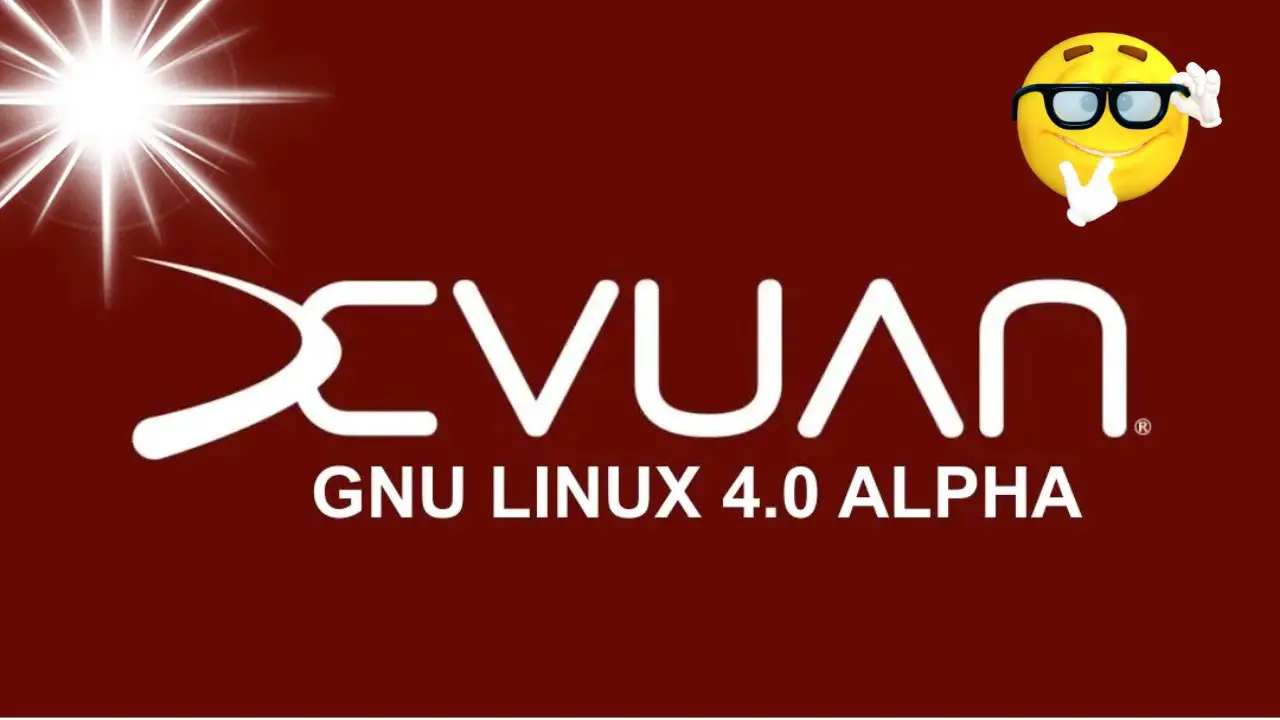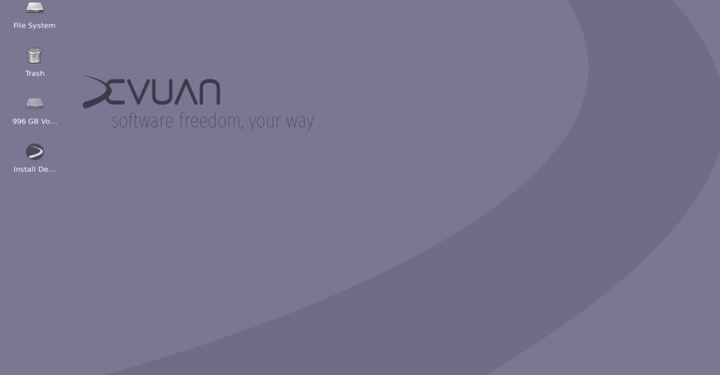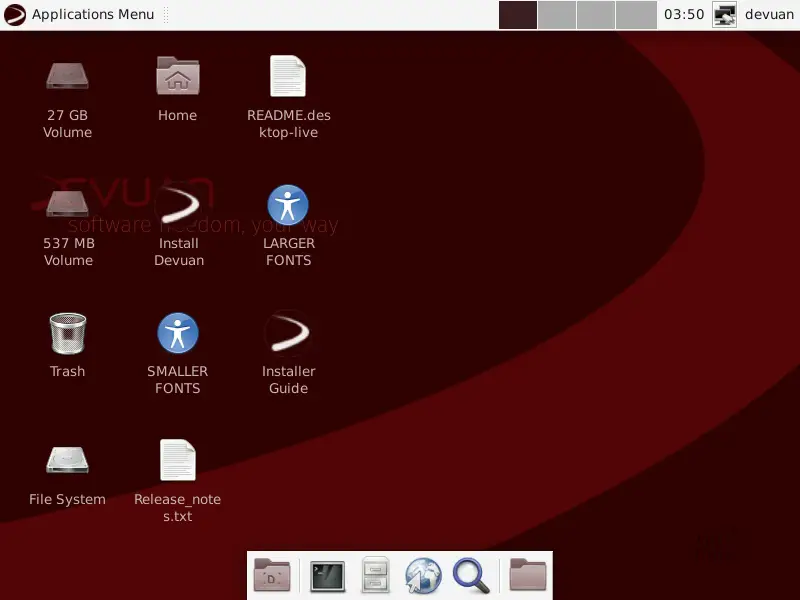Devuan vs. Antix: Embracing Non-Systemd Linux

In the realm of Linux distributions, the topic of systemd invariably surfaces as a contentious subject. Systemd, a bundled set of utilities and services, has become a ubiquitous component in modern Linux distros. However, its centralized architecture and perceived complexity have drawn criticism from those who favor a more modular and decentralized approach to system management.

Enter Devuan and Antix, two notable Linux distributions that have eschewed the use of systemd. These distributions offer alternative solutions for system initialization and service management, aiming to provide a lightweight and customizable computing experience.

Devuan: Debian with an Anti-systemd Stance
Devuan emerged as a fork of Debian Linux in response to the latter’s adoption of systemd. It mirrors the Debian codebase but replaces systemd with the older System V init and various other lightweight utilities. This decision stemmed from concerns regarding systemd’s monolithic structure, potential security vulnerabilities, and its impact on boot times and system stability.
Devuan’s developers have implemented a suite of alternatives to systemd’s core functionality. These include the following:
- OpenRC: Process and service management framework
- Sysvinit: Legacy system initialization system
- Eudev: User-space event-driven daemon for device management
- Util-linux: Collection of essential system utilities
Antix: Minimalism and Choice Regained
Antix Linux is a lightweight and versatile distribution based on Debian. Like Devuan, it embraces a non-systemd philosophy, providing a highly customizable environment with a focus on simplicity and user control. Antix offers the following options for system management:
- Sysvinit: Traditional system initialization system
- Runit: Lightweight and modular process management framework
- OpenRC: Process and service management framework based on OpenBSD’s rc framework
Additionally, Antix users can choose from various desktop environments, including Xfce, LXQt, and MATE. This flexibility empowers users to tailor their operating system to their specific needs and preferences.
Comparison: Devuan vs. Antix
While both Devuan and Antix share a common anti-systemd stance, there are key differences between the two distributions:
- Development Model: Devuan maintains a close relationship with the Debian project, adopting its release cycles and incorporating upstream changes. Antix, on the other hand, operates more autonomously, allowing for greater independence and customization.
- Software Availability: As a fork of Debian, Devuan benefits from a vast repository of packages and software. Antix provides a smaller but curated set of packages, placing emphasis on stability and a consistent user experience.
- Target Audience: Devuan appeals to users who value Debian’s stability and extensive software ecosystem, while Antix caters to those seeking a lightweight and customizable environment with a minimal footprint.
Conclusion
Devuan and Antix stand as compelling choices for those seeking a Linux experience without the presence of systemd. While Devuan provides a solid fork of Debian with alternative system management tools, Antix offers greater flexibility and customization, making it a suitable choice for power users and those who appreciate the ability to tailor their operating system. Ultimately, the best distribution depends on individual preferences and requirements, and both Devuan and Antix are worthy contenders in the pursuit of a non-systemd Linux experience.# Devuan Vs. Antix: Without Systemd
Executive Summary
Devuan and Antix are two Linux distributions that have gained popularity among users seeking alternatives to the systemd init system. Both distributions offer compelling features and advantages, catering to distinct user preferences and needs. This article provides an in-depth comparison of Devuan and Antix, exploring their key differences and similarities to guide users in making an informed decision.
Introduction
In the realm of Linux distributions, the choice of an init system has been a topic of ongoing debate. Systemd, with its centralized approach, has dominated the landscape in recent years. However, a growing number of users prefer alternatives that offer greater flexibility and control over system initialization. Devuan and Antix emerged as prominent contenders in this space, offering distinct takes on a systemd-free environment.
Package Management
Devuan
- Utilizes the Debian package management system, offering access to a vast repository of software.
- Supports both traditional APT and DPKG package management tools.
- Provides a stable and well-maintained software ecosystem.
Antix
- Employs the apt-get package management system, allowing for seamless integration with Debian repositories.
- Offers a curated selection of pre-installed applications, making it a convenient choice for users seeking a ready-to-use system.
- Provides access to both stable and testing repositories for a wider software selection.
User Interface
Devuan
- Supports a range of desktop environments, allowing users to customize their preferred interface.
- Includes GNOME, KDE Plasma, XFCE, and LXDE as default options, catering to diverse user preferences.
- Offers a familiar and user-friendly graphical interface for ease of use.
Antix
- Primarily uses the IceWM window manager, providing a lightweight and customizable desktop environment.
- Features a minimalistic approach with a focus on efficiency and resource conservation.
- Offers a unique and distinctive user experience that may appeal to users seeking a non-traditional Linux desktop.
Hardware Compatibility
Devuan
- Maintains wide hardware compatibility by leveraging the extensive hardware support provided by Debian.
- Supports a wide range of laptops, desktops, and servers, ensuring seamless integration with existing hardware.
- Offers a stable and reliable platform for various hardware configurations.
Antix
- Focuses on lightweight hardware requirements, making it suitable for older or low-resource systems.
- Supports a limited range of hardware compared to Devuan, but remains compatible with a significant number of devices.
- Provides a cost-effective solution for budget-conscious users or those with older hardware.
Security
Devuan
- Adopts a conservative approach to security, prioritizing stability and reliability over cutting-edge features.
- Utilizes the Debian security model, providing regular security updates and patches.
- Offers a mature and well-tested security infrastructure for peace of mind.
Antix
- Employs a minimal security approach, emphasizing simplicity and user control.
- Allows users to configure security settings manually, providing greater flexibility but also requiring more expertise.
- Provides a lightweight and customizable security framework for those who prefer a hands-on approach.
Conclusion
Devuan and Antix offer compelling alternatives to systemd-based Linux distributions. Devuan stands out with its vast software repository, stable package management, and wide hardware compatibility, making it an ideal choice for users seeking a reliable and customizable experience. Antix, on the other hand, excels in lightweight performance, minimal security overhead, and a unique user interface, catering to users who value efficiency and customization over extensive features. Ultimately, the choice between these distributions depends on individual preferences, hardware capabilities, and desired user experience.
Keyword Phrase Tags
- Antix without systemd
- Devuan without systemd
- Linux alternatives to systemd
- Lightweight Linux distributions
- Security and stability in Linux

I’ve been thinking about trying out a systemd-free distro for a while now. This article has given me some good information to consider. Thanks!
I’m not sure I see the point of using a systemd-free distro. I’ve never had any problems with systemd on my other Linux installs.
Systemd is a controversial topic in the Linux community. Some people believe it’s too complex and buggy, while others believe it’s a necessary modernization of the Linux init system. Ultimately, the decision of whether or not to use a systemd-free distro is a personal one.
I think it’s silly to avoid systemd just because it’s new. It’s a much more modern and efficient init system than sysvinit.
I’m so glad that there are still some Linux distros that don’t use systemd. It’s like a breath of fresh air in a world that’s becoming increasingly complex.
Oh, you’re using a systemd-free distro? How quaint. I bet you still use a rotary phone, too.
I tried using a systemd-free distro once, but it was so slow that I could barely open a terminal window. I guess I’m just too used to the speed of systemd.
I’ve been using Devuan for a few months now and I’m really happy with it. It’s a stable and secure distro that’s perfect for my needs.
I’ve tried both Devuan and Antix, and I prefer Antix. It’s a bit more lightweight and faster than Devuan.
I would recommend Devuan over Antix for users who are concerned about security. Devuan has a strong focus on security and has been audited by several security organizations.
Antix is the clear winner when it comes to performance. It’s one of the fastest and lightest distros that I’ve ever used.
I’ve been using Linux for over 20 years and I’ve never used a systemd-based distro. I don’t see any reason to change now.